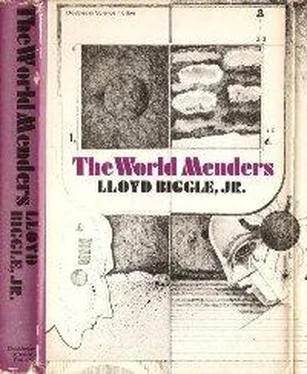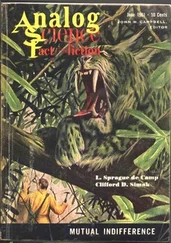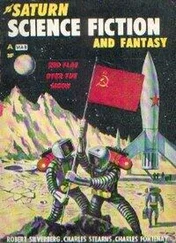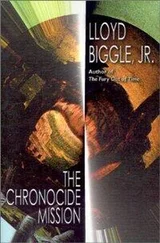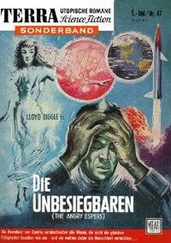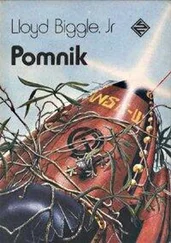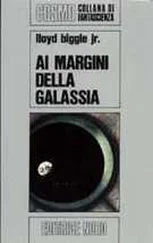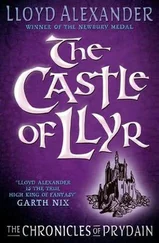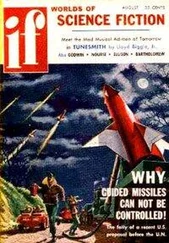Lloyd Biggle Jr. - The World Menders
Здесь есть возможность читать онлайн «Lloyd Biggle Jr. - The World Menders» весь текст электронной книги совершенно бесплатно (целиком полную версию без сокращений). В некоторых случаях можно слушать аудио, скачать через торрент в формате fb2 и присутствует краткое содержание. Год выпуска: 1971, Издательство: Doubleday, Жанр: Фантастика и фэнтези, на английском языке. Описание произведения, (предисловие) а так же отзывы посетителей доступны на портале библиотеки ЛибКат.
- Название:The World Menders
- Автор:
- Издательство:Doubleday
- Жанр:
- Год:1971
- ISBN:нет данных
- Рейтинг книги:5 / 5. Голосов: 1
-
Избранное:Добавить в избранное
- Отзывы:
-
Ваша оценка:
- 100
- 1
- 2
- 3
- 4
- 5
The World Menders: краткое содержание, описание и аннотация
Предлагаем к чтению аннотацию, описание, краткое содержание или предисловие (зависит от того, что написал сам автор книги «The World Menders»). Если вы не нашли необходимую информацию о книге — напишите в комментариях, мы постараемся отыскать её.
The World Menders — читать онлайн бесплатно полную книгу (весь текст) целиком
Ниже представлен текст книги, разбитый по страницам. Система сохранения места последней прочитанной страницы, позволяет с удобством читать онлайн бесплатно книгу «The World Menders», без необходимости каждый раз заново искать на чём Вы остановились. Поставьте закладку, и сможете в любой момент перейти на страницу, на которой закончили чтение.
Интервал:
Закладка:
Again he had forgotten the olz.
So intent was he on the crude illage that he did not notice Anan liorgley until the baker spoke to him. “Not much culture to study there,” Borgley observed dryly.
“What happened to them?” Farrari demanded.
“What happened to whom?” “The olz.”
Borgley shrugged. “Nothing happened to them. They’re at work in the fields. You can’t see them because of the hedges. Looks like a good crop this year, which is fortunate. It’s the year of the half crop.”
“What about the children and the elders? Do all of them work?”
“All of them,” Borgley said. “A baby old enough to toddle is old enough to pull weeds. The younger ones are carried by their mothers—who, of course, put in the full day’s work. As for the elders—there aren’t any. No ol lives long enough to become an elder.”
Farrari looked again at the huts. What do they do during the winter?”
“They stay in their village,” Borgley said. “And rot. I’m taking you to Scorv. They tell me you did not do well as a mill apprentice’s helper.” He chuckled. “Maybe you’ll like the bakery business better—though I’ll warn you that you’ll work harder.”
Farrari gave the viewer a final spin. “Why do they have a mill out here in the middle of nowhere?”
“It’s a very old building,” Borgley said. “When it was built it probably stood in the center of a fertile grain-growing area, and they thought flour easier to transport than grain. That’s one theory. Another is that the mills make a lot of noise when running to capacity, and some ancient kru banished them from Scory so he could sleep nights. The specialists at base probably have a dozen more theories, and we’ll never be sure as to which is correct, if any, the fact is that most of the mills in the lilorr are about the same distance from Scory as this one, in various directions, and all of them are in the middle of nowhere.”
“If your theory is correct, why didn’t they move the mills when the grainfields wore out?”
“This whole country is wearing out,” Borgley said brusquely. “Sometimes it worries me. Ready to go?”
The country was wearing out. The road was excellent—wide, solidly constructed of broad, flat stones, sloped and ditched for drainage, but it appeared to be centuries old. The passage of countless wagons had rutted the stone, and that puzzled Farrari because the ruts were much narrower than the wide wheels of the wagons. The puzzle resolved itself when they reached the first washout. There the road dipped into a deeply eroded gully. Dirt had been dumped into it and leveled, but it was crisscrossed with soft ruts and the road made a steep plunge on either side. Rather than properly repair the road, the rascz had widened their wagon wheels so that the loads wouldn’t sink so deeply into the soft dirt and transferred the problem to the powerful muscles of the narinpfz. The narmpfz strained and whimpered and tensed their massive bodies and somehow kept the wagons moving.
Twice troops of the kru’s cavalry passed them, headed for Scorv. Short, colorful capes flapping, bundles of spears strapped to their saddles, they pranced along single file on their grill, graceful, high-stepping horned steeds. Traffic in the opposite direction was not heavy, but it was continuous: wagons headed for the mill or perhaps for a remote grainery, a kru’s messenger keeping his gril at a desperate,, lunging run with high-pitched shouts and veering recklessly around the slower traffic, occasional solitary riders lumbering along on narmpfz—wagoneers, Borgley said, who lived in one of the up-country towns and made their living by building wagons and selling them in Scory with a load of quarm wood.
The river looped toward them, and as they reached its floodplain they began to encounter tremendous washouts. When possible the road bypassed them, but though the detours now ran over hard ground, in wet weather the heavy wagons would churn them into morasses.
The country was wearing out.
In the full heat of midafternoon they approached the city of Scorv. The road merged with another coming in from the west, then with one from the south that within sight of the intersection merged with another from the southwest, then with one from the east that led downstream to a ford that only grilz could negotiate; wagons had to journey far north of the mill to find even a low-water crossing.
Farrari muttered, “Why don’t you invent a bridge and get rich?” Borgley did not answer. Technology imposed from without…
The road pointed upward, encircling the hill to reach the city that crowded its broad summit. They turned aside when they reached the cluster of buildings at the foot of the hill, entered a stonewalled enclosure, and came to a stop amid rows of stacked quarm wood and empty flour crocks behind a double-storied, stone building from which emanated the rich, tantalizing odors of baked bread and pastry.
“Home,” Borgley announced, using the Rasczian word.
Two apprentices, both young 1PR agents, hurried out to unload the wagon. Farrari offered to help and did not feel offended when they laughingly waved him aside. Borgley led him into the bakery, a long room with a row of stone ovens at one side and huge vats already bulging with rising dough for the night’s baking, and up one of the ramplike stairways to his living quarters. He introduced his wife Nissa, 228, and a few moments later Farrari sat relaxed in front of an open slit in the wall that constituted a Rasczian window and looked down on the master race of Scorvif while sipping a cool, pungent drink and munching a hard, chewy, excessively sweet cake.
He stared disbelievingly: he had come to think of them as monsters, these rascz, and they were obviously a happy albeit serious people, decent looking, decent behaving, with high regard for family, for work, for an orderly society, humbly worshipful before their kru.
As cooling shadows of late afternoon enveloped the narrow street, the merchants and craftsmen emerged with their families, the women wound in strips of exquisitely-colored cloth—from those same vivid, long-lasting dyes Farrari had admired on the kru’s tapestry—the men bare-armed with embroidered vests and the short, legless garment Peter Jorrul had worn, the children charming miniature replicas of their parents. They greeted friends with a polite hut obviously affectionate formality. Some began the long climb to the city to greet friends there, and a short time later a few city fami lies arrived to greet friends in this foot-of-the-hill suburb.
They were not monsters.
“Where are the olz?” Farrari demanded suddenly.
Nissa Borgley smiled. She was younger than Rani Holt, slender, quietly attractive, and with a subdued personality that puzzled Farrari until he remembered that these agents, in their adopted environment, actually were natives. Rani Holt, wife of a miller, was a hostess: because of its remoteness the mill also served as an inn, with an endless procession of overnight guests to entertain. She played her role to perfection. Nissa Borgley was the wife of a city tradesman: she would walk with her husband, of an afternoon, and greet friends quietly but affectionately, and in her own home she would be the typical Rasczian housewife and speak when spoken to. She, also, played her role to perfection.
“I’ve never seen an ol,” she said. “There aren’t any in Scorv—or in any other city or town. You see the olz belong to the kru.”
Farrari repeated slowly, “The olz belong to the—”
“So does the land. All of the agriculture and forestry and animal husbandry and mining are royal monopolies. So there are no taxes—the kru derives his income from his own properties.”
Читать дальшеИнтервал:
Закладка:
Похожие книги на «The World Menders»
Представляем Вашему вниманию похожие книги на «The World Menders» списком для выбора. Мы отобрали схожую по названию и смыслу литературу в надежде предоставить читателям больше вариантов отыскать новые, интересные, ещё непрочитанные произведения.
Обсуждение, отзывы о книге «The World Menders» и просто собственные мнения читателей. Оставьте ваши комментарии, напишите, что Вы думаете о произведении, его смысле или главных героях. Укажите что конкретно понравилось, а что нет, и почему Вы так считаете.
